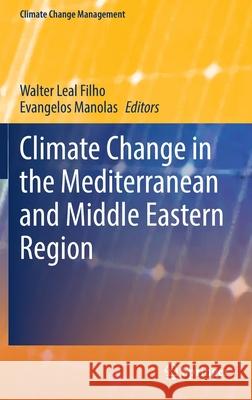Climate Change in the Mediterranean and Middle Eastern Region » książka
topmenu
Climate Change in the Mediterranean and Middle Eastern Region
ISBN-13: 9783030785659 / Angielski / Twarda / 2021 / 502 str.
Kategorie:
Kategorie BISAC:
Wydawca:
Springer
Seria wydawnicza:
Język:
Angielski
ISBN-13:
9783030785659
Rok wydania:
2021
Wydanie:
2021
Numer serii:
000398515
Ilość stron:
502
Waga:
0.92 kg
Wymiary:
23.39 x 15.6 x 3.02
Oprawa:
Twarda
Wolumenów:
01
Dodatkowe informacje:
Wydanie ilustrowane











